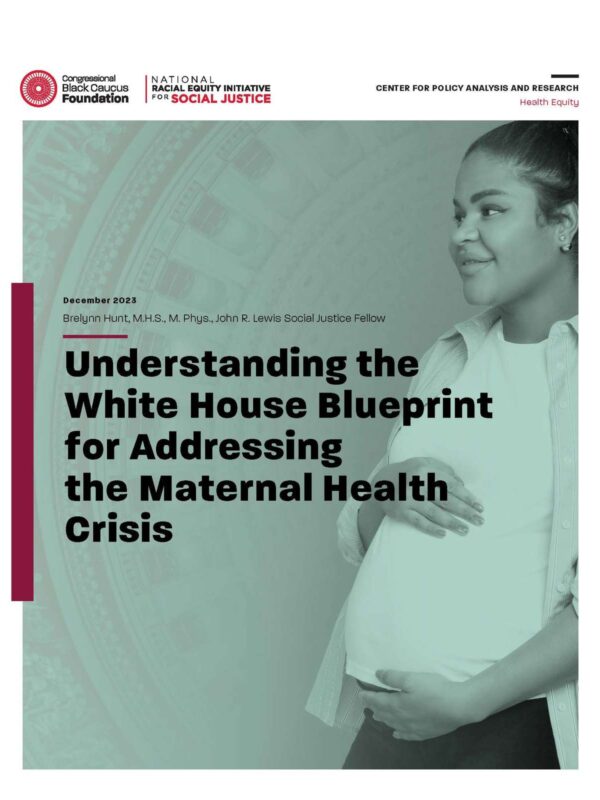
Understanding the White House Blueprint for Addressing the Maternal Health Crisis
This policy brief examines the Biden-Harris Administration’s substantial financial commitment toward the maternal health crisis, provides an overview of the extensive repercussions of the maternal health crisis, and offers a detailed analysis of the strategies proposed.
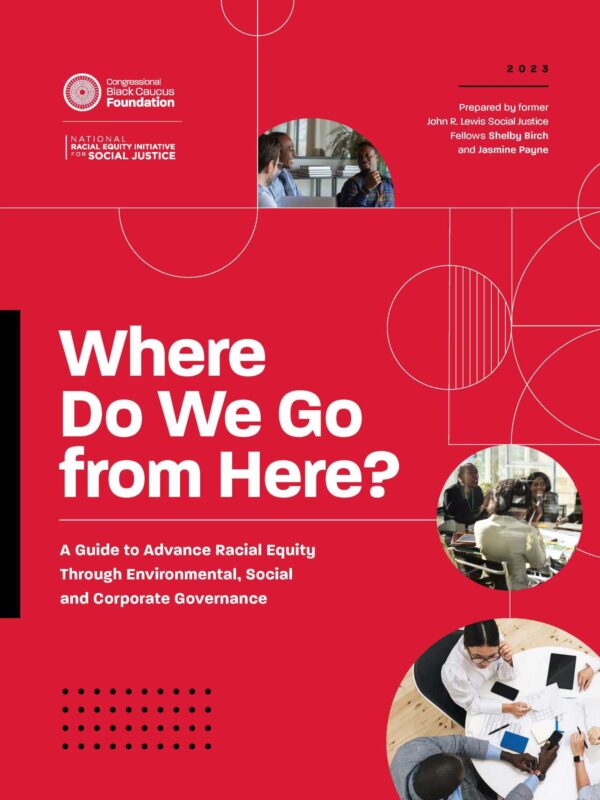
NREI 2023 Corporate Social Responsibility (CSR) Guide
As companies seek ways to address systemic and social injustice beyond a reactionary response, CBCF introduces this CSR and Environmental, Social and Governance (ESG) guide to offer forward-thinking, racially progressive strategies and best practices that will create earnest value and impact for all Black stakeholders.
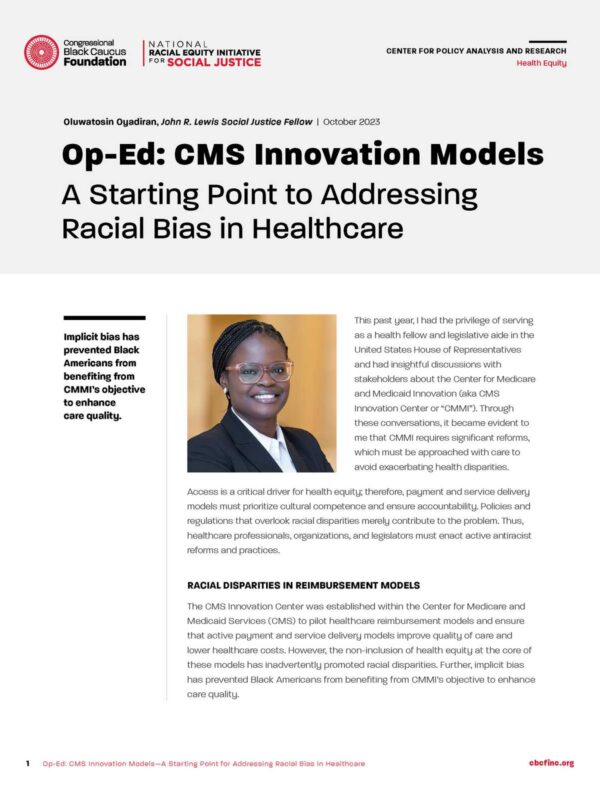
Op-Ed: CMS Innovation Models, A Starting Point to Addressing Racial Bias in Healthcare
Implicit bias has prevented Black Americans from benefiting from the Center for Medicare and Medicaid Innovation (CMS or CMMI)’s objective to enhance care quality. This op-ed outlines the current CMS system and provides recommendations to address racial bias in healthcare.
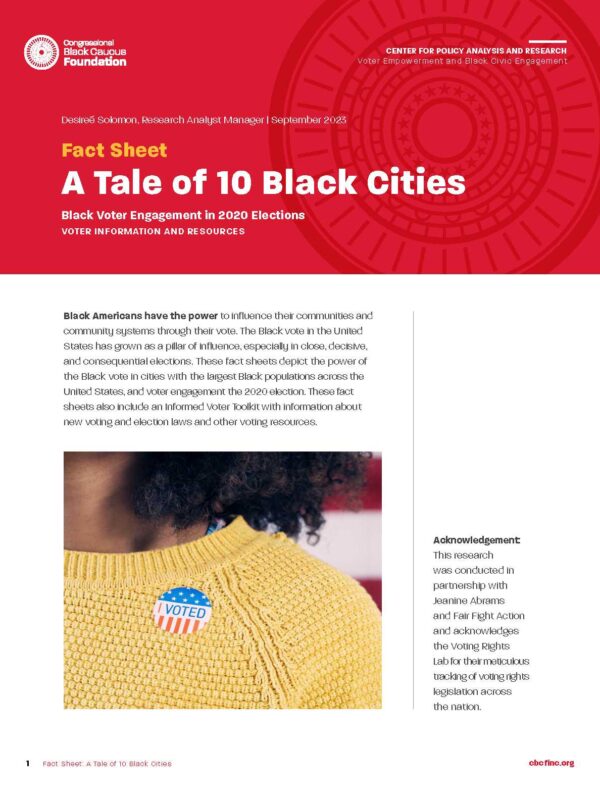
Fact Sheet: A Tale of 10 Black Cities
This fact sheet depicts the power of the Black vote in the U.S. cities with the largest Black population, voter engagement in the 2020 election, and an Informed Voter Toolkit with information about new voting and election laws and other voting resources.
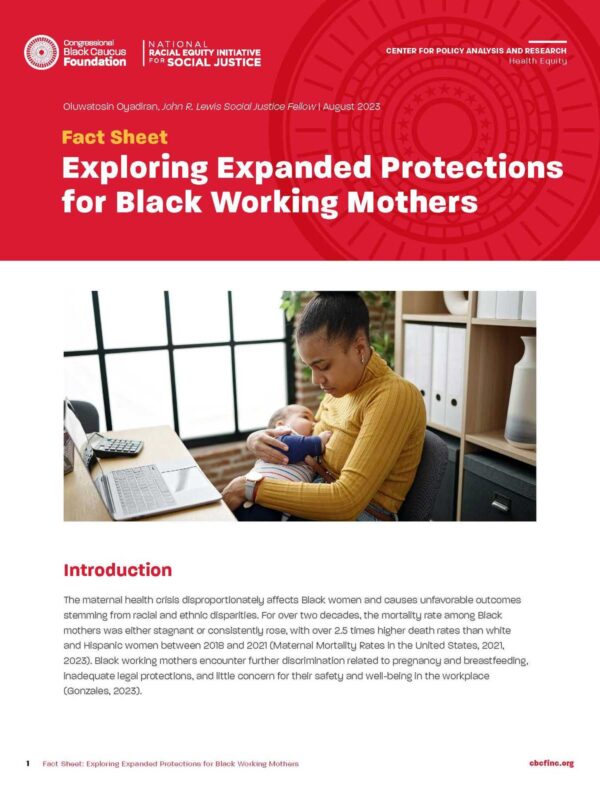
Exploring Expanded Protections for Black Working Mothers
This fact sheet provides an overview of the effects of the Pregnant Workers Fairness Act (PWFA) and the Providing Urgent Maternal Protections (PUMP) for Nursing Mothers Act on Black working mothers and offers actionable recommendations for improving their health outcomes.
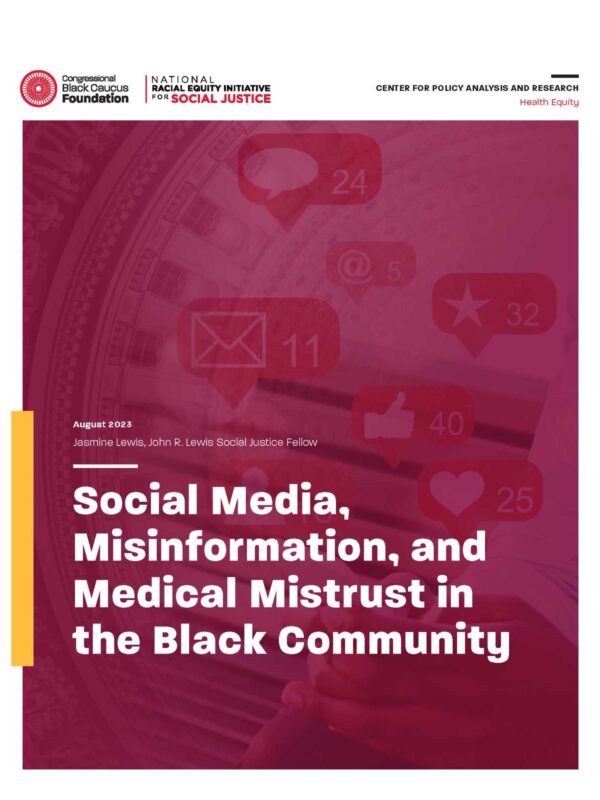
Social Media, Misinformation, and Medical Mistrust in the Black Community
This policy brief explores the relationship between mistrust and misinformation, then examines the central role of social media in spreading misinformation. It concludes with policy recommendations for establishing trust in public health communications.
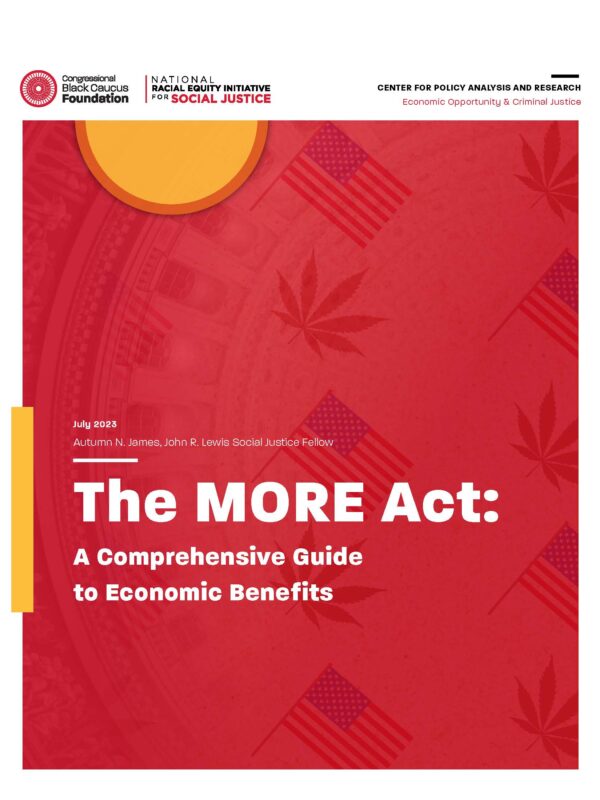
The MORE Act: A Comprehensive Guide to Economic Benefits
This policy brief assesses the economic benefits of passing the Marijuana Opportunity Reinvestment and Expungement (MORE) Act of 2020 and its importance for the African American community.
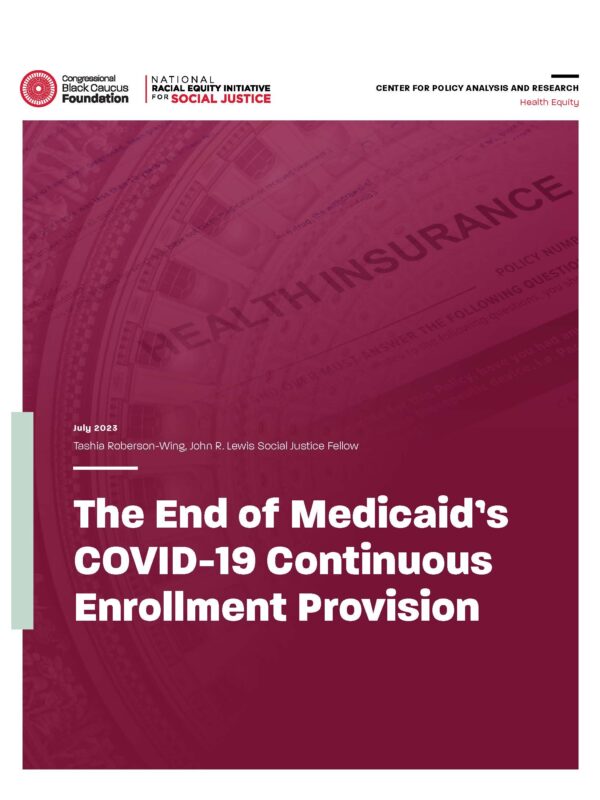
The End of Medicaid’s COVID-19 Continuous Enrollment Provision
This policy brief discusses how the unwinding of Medicaid’s COVID-19 continuous enrollment provision detrimentally impacts Medicaid enrollees, providers of managed care plans, and the states that operate these programs, disproportionately affecting the Black communities.
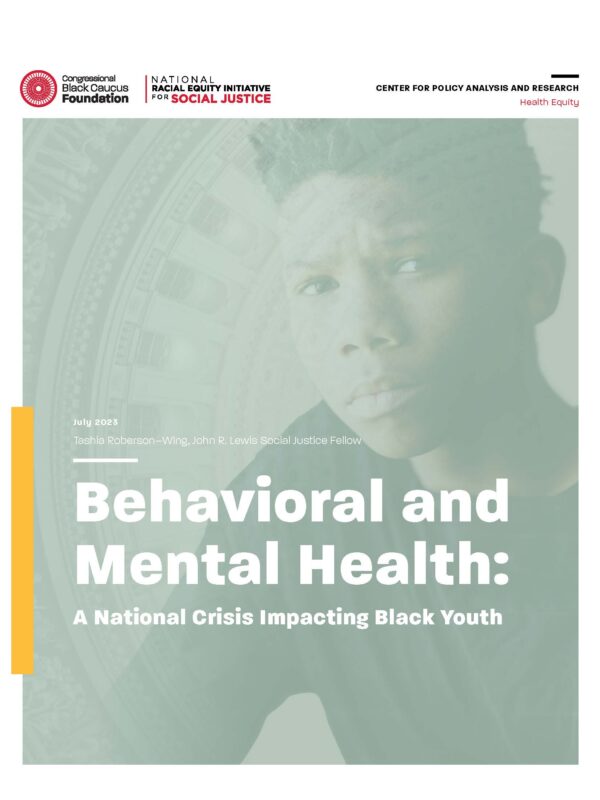
Behavioral and Mental Health: A National Crisis Impacting Black Youth
This policy brief explores trends linked to Black youth’s behavioral and mental health, current efforts to expand behavioral and mental health services, and ways to continue expanding services.
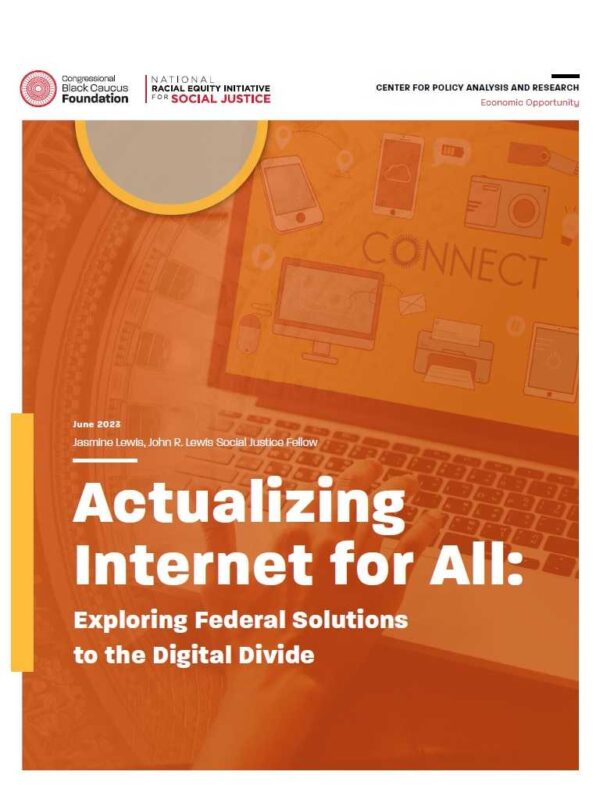
Actualizing Internet for All: Exploring Federal Solutions to the Digital Divide
Today, despite the growing importance of reliable high-speed internet access, or “broadband,” a substantial number of communities across the nation—namely low-income, elderly, urban, rural, and tribal communities—do not have adequate access to the internet. In fact, as of 2021, more than 42 million Americans did not have the ability to purchase broadband internet.

